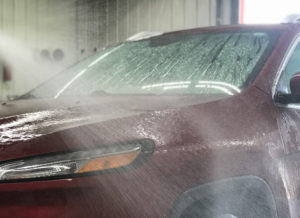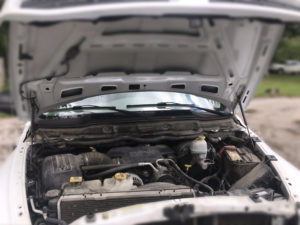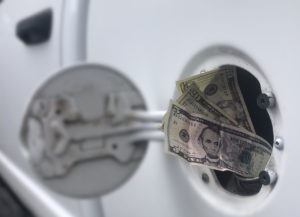PAINT CARE MECHANICAL MAINTENANCE GAS SAVING
PAINT CARE TIPS

We use one of the best and longest lasting paint systems in the world. Here are some tips for you to follow to make sure your ride stays looking good for the long haul.
- Rock chips are one of the number one problems with a vehicle’s finish. DON’T follow behind other drivers too closely. Stay back at least 3-4 seconds to avoid rock chips.
- Try to avoid gravel roads or drive very slowly on them after having your vehicle repainted. The finish is most easily damaged within the first 30 days.
- Don’t wax your vehicle within the first 120 days after painting.
- Wash your vehicle often with fresh water in the shade or cooler temperatures in the early morning or late afternoon. Direct sunlight and high temperatures are damaging to the finish.
- Don’t use strong detergents to wash your vehicle. Only use mild liquid soaps or preferably a specially formulated car soap.
- Don’t wash the entire vehicle at once. Wash one section with a soft terrycloth or wash mitt and rinse it before moving on to the next section. Spray the vehicle often with water while cleaning to prevent soap from drying on the paint. Only use a soft cloth or scratch-free fabric to dry the vehicle.
- Wax your vehicle at least twice a year after it is freshly cleaned. Even vehicles with a clear coat should be waxed to improve the longevity of the finish.
- Don’t park under trees. Sap and bird droppings may damage the finish and should be cleaned off as soon as possible.
- Don’t let gasoline or antifreeze remain on painted surfaces for long. Rinse with water as soon as possible.
- Don’t use a scraper to remove snow or ice from painted surfaces.
Mechanical Maintenance Tips

Proper mechanical maintenance will save costly repairs and extend the life of your vehicle. Here are a few mechanical tips.
- Always consult your owner’s manual for recommended vehicle maintenance.
- Have all fluids checked, including brake, power steering, transmission, windshield washer solvent and antifreeze annually.
- Rotate and balance tires every 6000 miles.
- Check alignment every 15,000 miles or once a year, especially after the 2nd year.
- Check tire inflation at least weekly, especially in colder temperatures.
- Keep your engine tuned. A fouled spark plug or plugged/restricted fuel injector can reduce fuel efficiency as much as 30 percent.
- Have the chassis lubricated frequently. This extends the life of the moving components of the vehicle’s suspension system.
- Check battery cables and posts for corrosion and clean them as needed.
- Have the lighting system checked frequently, including headlights, turn signals, and brake and tail lights.
- Check windshield washer blades for cracks, tears, and windshield contact. Replace them approximately once a year or sooner if streaking begins.
- Inspect engine belts regularly. Look for cracks and missing sections or segments.
- Have the air filtration system checked frequently. The air filter should be checked approximately every other oil change for clogging or damage.
- Have your oil changed per the manufacturer’s recommendation. Oil is the life blood of your engine! For regular oil, it is recommended you change every 3,000 miles. For synthetic oil, the recommendation is every 5,000 miles. Despite the claims of some car manufacturers that their vehicles can handle much longer oil change intervals, the 3,000/5,000 mile rule is still the safest policy for your engine.
- Change your antifreeze every 2 years.
- Change your brake fluid every 2 years.
- Change your transmission fluid every 30,000 miles.
- Do scheduled 15,000, 30,000, 60,000 and 90,000 mile maintenance.
- Check for potential problems before they happen.
Money Saving Gas Tips

The cost of fuel keeps going up and is often unpredictable. Here are a few things you can do to take back some control of your fuel spending.
- Don’t drive aggressively. Fast starts and stops, changing speed frequently, and driving too fast can decrease fuel efficiency as much as 33%. Gas mileage rapidly decreases at speeds above 60 mph.
- Don’t let your vehicle warm up for more than a few minutes. Sitting idle always gets zero miles to the gallon.
- Keep the alignment of your vehicle’s wheels maintained. Improperly aligned wheels cause uneven or premature tread wear, costing you money on tires and fuel.
- Always keep your tires properly inflated. Not only is this a safety issue, but it will also lengthen the life of your tires and save you a mile or two per gallon.
- Inspect your gas cap when you fill up on gas. A loose or damaged cap can cause your gas to vaporize and escape.
- Replace your vehicle’s spark plug on a regular basis as recommended by the manufacturer. Replace the air filter on a regular basis as well. A dirty air filter can reduce fuel efficiency as much as 10%.
- Combine errands into one trip. One longer trip is better than several shorter trips.
- Don’t keep unneeded items in your vehicle, especially heavy ones. An extra 100 pounds can decrease fuel efficiency by 1-2%.